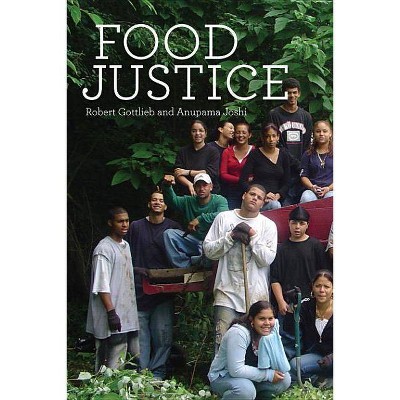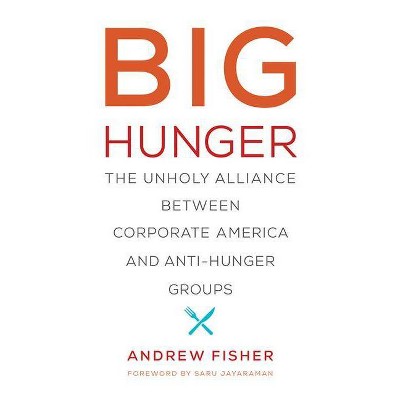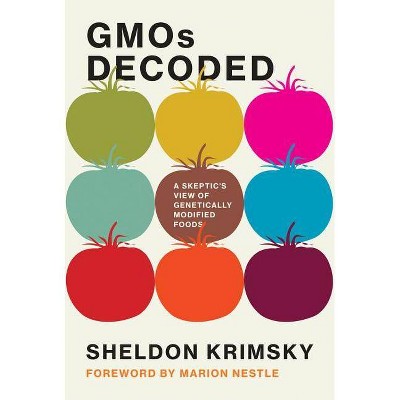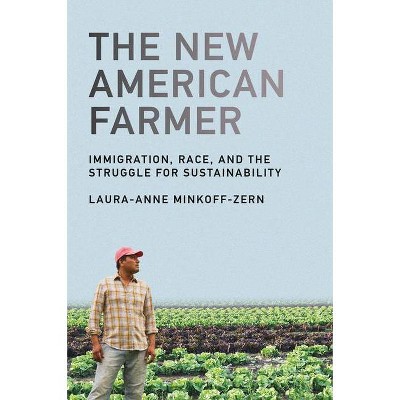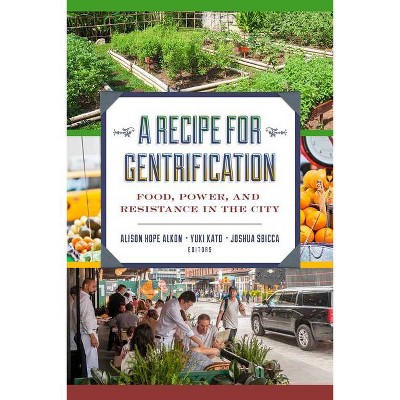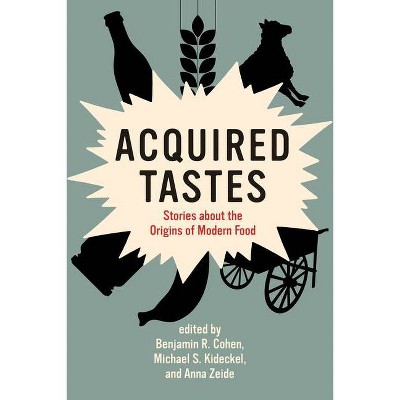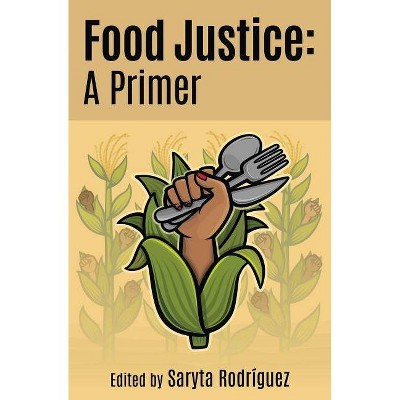Cultivating Food Justice - (Food, Health, and the Environment) by Alison Hope Alkon & Julian Agyeman (Paperback)
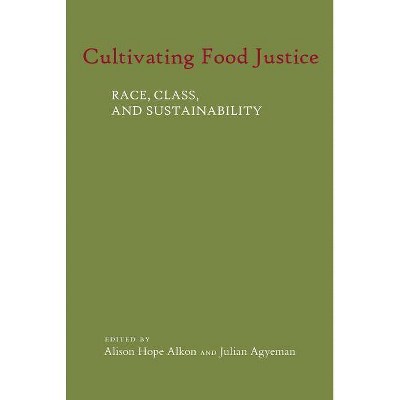
Similar Products
Products of same category from the store
AllProduct info
<p/><br></br><p><b> About the Book </b></p></br></br>Documents how racial and social inequalities are built into our food system, and how communities are creating environmentally sustainable and socially just alternatives.<p/><br></br><p><b> Book Synopsis </b></p></br></br><b>Documents how racial and social inequalities are built into our food system, and how communities are creating environmentally sustainable and socially just alternatives.</b><p>Popularized by such best-selling authors as Michael Pollan, Barbara Kingsolver, and Eric Schlosser, a growing food movement urges us to support sustainable agriculture by eating fresh food produced on local family farms. But many low-income neighborhoods and communities of color have been systematically deprived of access to healthy and sustainable food. These communities have been actively prevented from producing their own food and often live in "food deserts" where fast food is more common than fresh food. <i>Cultivating Food Justice</i> describes their efforts to envision and create environmentally sustainable and socially just alternatives to the food system. </p><p>Bringing together insights from studies of environmental justice, sustainable agriculture, critical race theory, and food studies, <i> Cultivating Food Justice </i>highlights the ways race and class inequalities permeate the food system, from production to distribution to consumption. The studies offered in the book explore a range of important issues, including agricultural and land use policies that systematically disadvantage Native American, African American, Latino/a, and Asian American farmers and farmworkers; access problems in both urban and rural areas; efforts to create sustainable local food systems in low-income communities of color; and future directions for the food justice movement. These diverse accounts of the relationships among food, environmentalism, justice, race, and identity will help guide efforts to achieve a just and sustainable agriculture.</p><p/><br></br><p><b> Review Quotes </b></p></br></br><br>The diversity of theoretical and conceptual approaches, subjects, and authors is refreshing. The dimensions of ethnic identity, racism, and white privilege as they affect the access and control of food-producing resources is highlighted and suggests important new directions in theorizing the political ecology of food and agriculture....The blend of academic and activist chapters provides a good mix of theory, strategy, and tactics.--<i>Annals of the Association of American Geographers</i>--<br><p>The answers to our food system ills are not found simply in opposition to our current food system; community solutions that incorporate racial justice, from production to consumption, are required. I could not agree more. As facilitators of community building, planners have a responsibility to fill in the gaps in representation at the food movement 'table' and understand the history of those coming (or not coming) to such a table. The insights in this book provide a foundation and direction for food system planners.</p>--<b>Jill K. Clark</b>, <i>Journal of Planning Education and Research</i>--<br><p><i>Cultivating Food Justice</i> covers important ground previously lacking in food studies and movements, particularly with regard to critical theorizing about race, class, ethnicity, sustainability, and food access, thereby expanding understandings of food justice as both a field of scholarly inquiry and fruitful activism.</p>--<i>American Studies</i>--<br><p>The case studies and theoretical discussions presented in this volume provide very useful insights for food activists, farmers, consumers, and policy-makers regarding the political, economic, and social processes that have influenced our global food system and its related class and racial injustices.</p>--<b>Rachel S. Madsen</b>, <i>Agriculture and Human Values</i>--<br><p/><br></br><p><b> About the Author </b></p></br></br>Alison Hope Alkon is Assistant Professor in the Department of Sociology at the University of the Pacific. <p/>Julian Agyeman is Professor of Urban and Environmental Policy and Planning at Tufts University. He is the coauthor of <i>Sharing Cities</i> and the coeditor of <i>The Immigrant-Food Nexus: Borders, Labor, and Identity in North America</i>, each published by the MIT Press. <p/>Alison Hope Alkon is Assistant Professor in the Department of Sociology at the University of the Pacific. <p/>Julian Agyeman is Professor of Urban and Environmental Policy and Planning at Tufts University. He is the coauthor of <i>Sharing Cities</i> and the coeditor of <i>The Immigrant-Food Nexus: Borders, Labor, and Identity in North America</i>, each published by the MIT Press. <p/>Kari Marie Norgaard is Assistant Professor of Sociology and Environmental Studies at the University of Oregon. <p/>Laura-Anne Minkoff-Zern is Assistant Professor of Food Studies and Affiliate of the Departments of Geography and Women's and Gender Studies at Syracuse University. <p/>Jill Lindsey Harrison is Associate Professor of Sociology at the University of Colorado at Boulder. <p/>David Goodman is Professor of Environmental Studies at the University of California, Santa Cruz. <p/>Alison Hope Alkon is Assistant Professor in the Department of Sociology at the University of the Pacific. <p/>Julian Agyeman is Professor of Urban and Environmental Policy and Planning at Tufts University. He is the coauthor of <i>Sharing Cities</i> and the coeditor of <i>The Immigrant-Food Nexus: Borders, Labor, and Identity in North America</i>, each published by the MIT Press.
Price History
Cheapest price in the interval: 28.99 on October 28, 2021
Most expensive price in the interval: 35.49 on March 10, 2021
Price Archive shows prices from various stores, lets you see history and find the cheapest. There is no actual sale on the website. For all support, inquiry and suggestion messagescommunication@pricearchive.us
